Cleve Jones has a clear memory from the day his mentor was gunned down in San Francisco's City Hall in 1978. "In my heart, I believed the gay rights movement was over," he says. But by the time the sun had set that sorrowful day, "tens of thousands of men, women, and children of every age, race, and background were marching with their candles down Market Street, and I realized the movement wasn't over at all. It was just beginning."
While most people were shocked by news of the assassination, it likely wouldn't have come as a surprise to Harvey Milk. In the last year of his life, the San Francisco supervisor recorded a final testament to be played in the event that he was killed -- an effort at self-preservation that the new movie Milk depicts in several scenes, showing Sean Penn as the politician reciting the events of his life at his kitchen table in the Castro.
Director Gus Van Sant's moving biopic -- opening across the country in late November and early December -- offers a fresh look at the pioneering leader and his contributions to politics and community organizing 30 years after his death. That's what everyone will be talking about, and rightfully so. But given the huge impact of his short life--he was 48 years old when aggrieved former supervisor Dan White murdered him and then-mayor George Moscone -- and the tumultuous events of the next three decades, it's hard not to wonder: What if Harvey Milk hadn't been killed?
"It may be my biased opinion," Milk's speechwriter Frank M. Robinson says, "but I believe that Harvey would've ended up as a major political force in this country."
Alas, we'll never know. But in talking to some of Milk's closest friends, campaign aides, allies, and observers (including his nephew Stuart), The Advocate pulled together the likeliest possibilities for the life that could have been.
Although he died penniless -- "in debt up to his ears," recalls one friend -- Milk was on a seemingly limitless trajectory in 1978. After three unsuccessful campaigns for office, he'd been elected to San Francisco's board of supervisors the previous year, becoming the first openly gay person elected to any high-profile office in the country. He held the office for only 11 months, but in that time Milk became a City Hall player: He molded the gay community into a united voting bloc, and his populist agenda -- which attracted straight families, working-class voters, and senior citizens -- gave him to a powerful base. Though he and Moscone were initially cautious with one another, they quickly became close allies.
"He was such a neighborhood organizer," says Sally Miller Gearhart, one of the first out lesbians in the nation to become a tenured professor. Gearhart worked closely with Milk to defeat the infamous Briggs Initiative, the statewide ballot proposition that would've barred gay and lesbian teachers from public schools. "He really did listen to lots of people. He really did believe in diversity. He was more than just a supervisor."
Tory Hartmann, a longtime Democratic Party worker whose husband served as Milk's treasurer on two campaigns, says, "Moscone was a nice guy, but Harvey could galvanize people. He was like a lightning rod -- he had the electricity in him."
Nearly a year in office, Milk introduced two successful pieces of legislation. One was an ordinance banning discrimination on the basis of sexual orientation. The other -- less noble but politically shrewd nevertheless -- was a "pooper-scooper" law requiring people to clean up after their dogs. Its passage attracted every media outlet in town and established Milk as a man of the people. But it was the defeat of the Briggs Initiative -- which Milk protested up and down the California coast, debating conservative state senator John Briggs on television and in town hall meetings -- that placed him on a larger stage and earned him a windfall of political capital.
"I absolutely believe Harvey would've become mayor of San Francisco," says Michael Wong, who was an adviser to Milk and a volunteer for Moscone. The two men, Wong says, had made a handshake deal: Moscone would run for one more term in 1979 and then endorse Milk for the mayor's office four years later. "At the time I thought the city was not ready to have a gay mayor," Wong adds. "But the night he won Briggs, I thought, Oh, my God, the city is ready! He was being called everywhere to do everything."
That year, a vacationing Moscone passed off his mayoral duties to the supervisors on a rotating basis, as per tradition. When it was Milk's turn, he called a press conference to declare himself the first openly gay -- albeit acting -- mayor in the country; a picture of him behind the desk ran on The Examiner's front page. In private he enthusiastically predicted that gays and Asians--two of his core constituencies--would control San Francisco politics within 10 years.
"He had his eyes set on the mayor's office," says Anne Kronenberg, Milk's campaign manager and aide during his term as supervisor. She's now deputy director of San Francisco's department of public health. "He was really a populist. He said whoever could solve the dog-poop problem in San Francisco could be mayor. He understood that social issues -- the kinds of things you deal with on a day-to-day basis -- are the kinds of things that get you elected. He had that greater vision."
But his ascension to mayor wasn't a done deal: A conservative backlash was brewing after the progressive election cycle that swept in Moscone and the diverse slate of supervisors, including Milk. Moscone may have faced a tough reelection campaign in 1979. "I think that Harvey was thinking about 1983, but in my mind it would have taken longer," Kronenberg says. "Change is difficult, and it's not quick. Had Harvey lived, I think we would've seen him be mayor, no doubt, but I don't think it would have been '83. It would've taken a while to build that larger coalition."
What might he have done as mayor? "Harvey focused very much on the needs of ordinary people," says activist Jones, who conceived the AIDS Memorial Quilt in 1985. "He would've been very interested in pursuing the progressive agenda: public transportation, services for the elderly, getting a gay and lesbian community center built." [An investigation into Milk's possible misuse of public funds for such a center was under way when he was killed. See story at left.] Milk favored rent control, a moratorium on high-rise construction, the integration of the police department, and closure of the city's South African consulate in response to apartheid-era policies (he introduced a bill to that effect that failed, but another passed after his death). He opposed a proposed voucher system for public schools, which he viewed as polite segregation. "None of them are gay and lesbian issues; they were people issues," says Wong, who is straight. "That's why people like myself were attracted to him: He was a progressive liberal."
In a theoretical second term as supervisor, Milk would have faced his biggest challenge: AIDS, which hit the city with neutron force in 1981. "He would've come out slugging," says Tom Ammiano, who was a friend of Milk's and is now himself a city supervisor. "That would've put him front row and center." Almost all of Milk's friends agree that he would have assumed a sorely needed role in the epidemic's early days as a bastion of reason, an intermediary with the mayor and with Washington, and a loud voice that would not be ignored. "There was no help from the state or the national government," Robinson recalls of the epidemic's early days. "What there was came from the city in which gays had become the most important voting bloc, thanks to Harvey."
"Harvey would've been one of the leaders in getting the money we needed to fight AIDS, and that's what it was about at the time," Gearhart says. "He would've immediately been one of the people working for an understanding of what it's about, beyond the gay male community."
"Harvey would've taken control in those early days," agrees Hartmann, who spent sleepless nights worrying about rumors that the Castro would be quarantined. "He would've found the best doctors, spread the word, rallied people. He would've been a force to be reckoned with. There was so much panic and whispering and false information. He would've told people when to worry, when not to worry -- and to take precautions. He would've been the voice. Instead, we just sort of fumbled around."
In the first year of the epidemic, AIDS activists, the city government, and the community at large skirmished about whether to close the city's bathhouses. To many, closure was a logical prophylaxis; to others, it was antigay. That then-mayor Dianne Feinstein, a straight woman, made the ultimate decision to shutter them was polarizing to gay men. Milk's empathy and pragmatism would no doubt have helped the situation.
"The fact that closing the bathhouses was unpopular would not have deterred him," Ammiano says. "Listen, I was Mr. Radical, and I thought they should be closed. Harvey might have taken a more practical approach than a moral one. AIDS was in your face; people were dying every day. Everyone was so worried. Perhaps he would've done it in a different way or reopened the bathhouses later with safe-sex practices and education. But he would've gone into it with his eyes wide open."
As the epidemic became a national concern, Milk's voice was equally missed. "We didn't have a clear national dialogue on AIDS," says Harvey's nephew Stuart Milk, who is gay and who now works with a company that provides services to at-risk youths and disabled people. "There was a lot of judgment on people who were infected. He would've been a strong voice in the community and in the outside world. He would've raised the dialogue and kept it from fear and blame. He would've injected some humor that would've reduced the fear of a solemn situation. I didn't see that voice coming loud and clear from one particular person."
Of course, AIDS might have hit even closer to home. "He might have had AIDS himself, because he went with very sexually active people," a close friend says. "It could've been a completely different story."
"It was a lottery," Ammiano says. "Every one of us was at risk. He was sexual, he was active, and he liked other men, and certain kinds of other men. But hey, I'm still here. I don't know why." Although Milk's longtime partner, Scott Smith (played in the movie by James Franco), died of AIDS-related complications in 1995, many of his contemporaries survive today.
Many who knew Milk envisage his eventual run for Congress. "He would've served another term as supervisor and then run for mayor," Robinson predicts. "After that, he would've been a shoo-in for the state assembly. My own belief is that he might have made it to the U.S. House of Representatives."
Yet how would an openly gay candidate have fared in the Reaganite 1980s? In Milk's case, perhaps counterintuitively well. In that era, speechmaking and media mastery assumed paramount importance, a value trickled down from the Oval Office. Milk was preternaturally talented at both. (Randy Shilts's biography, The Mayor of Castro Street, describes Milk as having a "publicist's soul.") He was as well-positioned as anyone to break through political preconceptions. "He played the media like a harp," friend Daniel Nicoletta says. "He was a great communicator. He could turn a phrase with the best of them. In a room where he was addressing hundreds, you could hear a pin drop."
Milk's replacement on the board of supervisors, fellow gay activist Harry Britt, ran against Nancy Pelosi in 1987 in a special election for a House seat left vacant when U.S. representative Sala Burton died. At the time, Pelosi was a housewife and fund-raiser for the Democratic Party. When liberal Democrats closed ranks around her, Britt narrowly lost the runoff -- "A lot of people are still bitter about that," Ammiano says -- and her political career was launched.
Pelosi is now speaker of the House of Representatives, and it's irresistible to speculate: If she had faced Milk in '87 instead of Britt, would a different glass ceiling have been broken in 2006 when the Democrats took back congressional power?
No scenario is too farfetched, those who knew Milk say. "Harvey ran for office even though people told him he was crazy. He was risk-taking in nature," Ammiano says. "Maybe he would've taken on Pelosi, and maybe he would've been in Congress. Who knows if Pelosi would even have run if he was still in the picture?" His tenacity and willingness to take a chance had landed him on the board of supervisors, and those two qualities would have continued to serve him well, Ammiano says. "I think he would've gone far."
Regardless of his political station, Milk would undoubtedly have continued to make contributions to the gay rights movement. "We'd be further along if he had lived," Stuart Milk says. "Thirty years have gone by, and it's interesting that we're faced with some of the same issues we faced back then." If Harvey were still alive -- he'd be 78 now -- "I don't think we'd have a Prop. 2 in Florida; I don't think we'd have a Prop. 8 like we have in California," Stuart says. "I think we'd have moved past that."
Most of Milk's friends and allies say the topic of gay marriage was not on the table in the '70s -- "It was just referred to in a long list of rights we did not have," Jones says -- and opinions differ on whether Milk would have supported it. "I would've had us wipe out the marriage privilege as it exists, and I would like to think that Harvey would've agreed with me," Gearhart says. "The whole idea of family had to be reconceptualized," meaning that people needed to think beyond the nuclear-family norm of the time. Jones agrees: "Much of what he did and believed was informed by the gay liberation movement. In those days we neither needed nor wanted the state to sanction our relationships."
Though Milk came of age as a radical, some say his egalitarian nature would have prevailed. "I'm sure Harvey would have been in favor of gay marriage," Robinson says, "for no other reason than that he was in favor of equal rights across the board. No exceptions."
"He always believed that people should have laws to protect them," Hartmann says. "There were stories, even before AIDS, about people whose partners died and had their stuff taken from them by their partner's family, who just swooped in. Those stories were rampant, and Harvey wanted laws to protect them. He knew that if you didn't have a law, you didn't have a recourse--you didn't have anything."
That view would have extended to workplace rights too. "He would've been very disappointed to know that we still don't have an Employment Non-Discrimination Act," Stuart Milk says. "It would be very frustrating [for him] to know we have Fortune 500 companies that protect against LGBT discrimination but we don't have federal legislation that protects us." And, Stuart notes, he'd be disappointed by the controversy over including transgender people in ENDA. If Milk were around today, "he would've been a positive voice that brought people together."
On a larger scale, Stuart says, his uncle might have changed this country's very discourse on sexuality. "Recently I heard politicians talking about 'tolerance,' " he says. "Harvey would have changed that term. I don't think he would've let people get away with talking about a more 'tolerant' society. He didn't want to be tolerated -- he wanted to be embraced. He wanted all of us to be embraced."

















































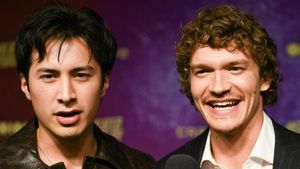


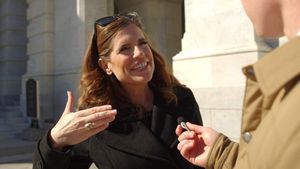

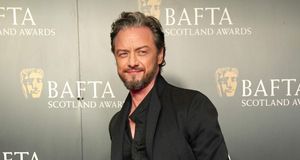

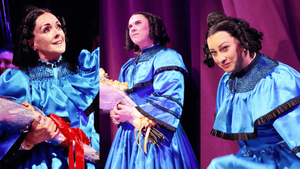


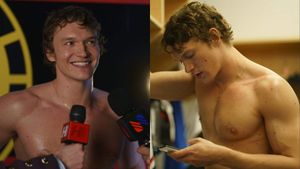


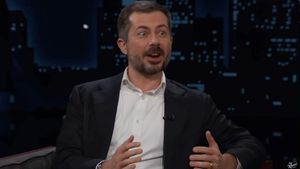
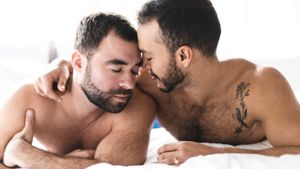



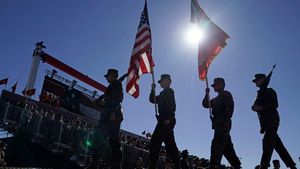
Charlie Kirk DID say stoning gay people was the 'perfect law' — and these other heinous quotes